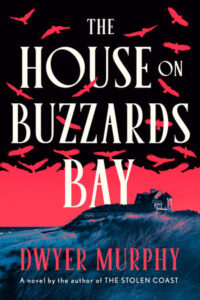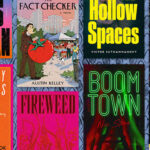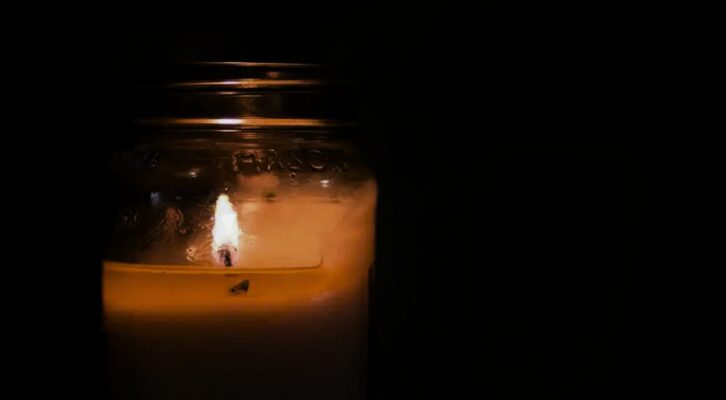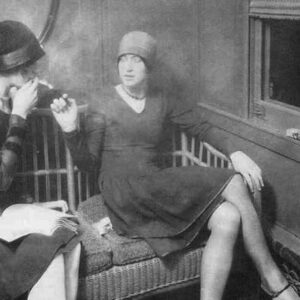I have a long fascination with coastal mysteries, in particular those set in New England. I grew up in an old Massachusetts fishing village that was settled by Spiritualists (long before my time, though their descendants still practiced). Even now, walking down its streets – toward the pier, up the bluffs, crossing the old stone bridge – I detect something unexplained in the air. That sense of the uncanny is, to me, at the heart of most good mysteries.
In pursuit of this fascination, I’ve read Hawthorne’s The House of the Seven Gables more times than I can count. That was Salem, a different town, haunted by witch trials and slaver fortunes, but all the classic New England coastal markers were laid out: early sunsets, family secrets, bizarre architecture, the distinct gloom and glint of the northern eastern seashore. I’m partial, also, to Melville’s descriptions of New Bedford, the closest city to hometown (Wareham, Massachusetts). In the early chapters of Moby Dick, Ishmael visits port before heading to Nantucket and describes the peculiar dreariness of a frosty night on the South Coast: “blocks of blackness, not houses, on either hand, and here and there a candle, like a candle moving about in a tomb.”
So I think some of this tradition was working on me as I wrote my new novel, The House on Buzzards Bay. It’s about a group of college friends reuniting at an old family house. When one of them disappears and a strange woman shows up in his place, their shared reality tears a little at the seams, and the walls begin closing in on them. In trying to craft the right atmosphere of dread and desire, I looked also to some favorite mysteries and thrillers set along the same shoreline, as well as a few novels that I won’t bother pretending are mysteries, really, but which involve some good old-fashioned bed-hopping among friends and neighbors, which is part of a good coastal vacation novel, too.
Here, then, is a highly idiosyncratic vision of the Massachusetts coast, as presented in some favorite novels.
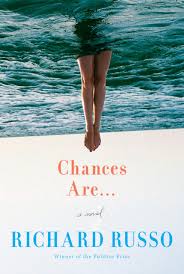
Richard Russo, Chances Are
Russo’s 2009 novel, That Old Cape Magic remains for me his ur-coastal Massachusetts story, but Chances Are offers readers a different and worthwhile perspective: a novel with a more explicit mystery propelling it forward. In Chances Are, three old college friends reunite on Martha’s Vineyard mourning their lost youth and also one special woman who disappeared some decades before. The Vietnam War, and in particular the vagaries of the draft, factor into the story in profound ways, and shining through all of it is Russo’s deep appreciation for humanity in all its variety and melancholy absurdity.

Stephen L. Carter, The Emperor of Ocean Park
Carter’s 1993 novel tells the story of the Garland family through the eyes of Talcott Garland, a Yale Law professor reckoning with scandal and regret in the wake of his father’s death. The paterfamilias was Judge Oliver Garland, a DC power player once snubbed on the cusp of an appointment to the Supreme Court. Upon the Judge’s death, his son finds himself caught up in a sprawling conspiracy of former spies and politicos, and the action soon shifts to the family’s summer haunts on Martha’s Vineyard. Carter paints a lively scene on the island and off, moving through rarefied circles of African-American power and community. And Carter is a dedicated stylist, too, with a voice that presumes a level of sophistication in its readers you rarely find in thrillers today. It makes for a highly enjoyable and deeply satisfying novel that resonates all the more on a second reading.
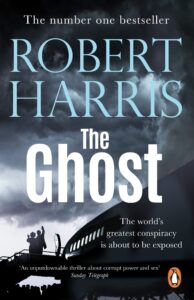
Robert Harris, The Ghost
This is probably the most straight-ahead mystery on the list, yet Harris’s work always has a tinge of something else for me, a hint at something slightly more profound at play. The Ghost is an island-set political thriller, following a ghostwriter sent to Martha’s Vineyard (yes, there are a lot of Vineyard novels, I know) to work on the memoirs of a British Prime Minister rapidly falling into disgrace over his handling of rendition requests made by American counterparts. If that sounds familiar, you’ve likely seen the Roman Polanski adaptation, The Ghostwriter, starring Ewan McGregor and Pierce Brosnan. In Harris’s novel, the Vineyard setting is lively and foreboding. (The film was clearly not filmed on Martha’s Vineyard, or in any American jurisdiction.) Harris has a knack for wringing the most suspense imaginable out of cloistered communities and settings, whether it’s the Vatican, the Parisian military complex, or the Vineyard dunes.
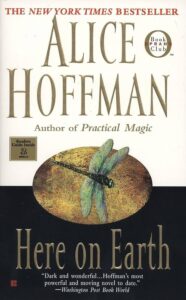
Alice Hoffman, Here on Earth
Hoffman is best known as the author of Practical Magic, which is best known for the 1998 movie starring Nicole Kidman, Sandra Bullock, Stockard Channing and company. That’s a nice small-town Massachusetts novel that’s not read much these days, but more to the point, Hoffman is also the author of Here on Earth, which was an Oprah-fueled sensation back when it came out in 1997, and which caught my attention years later because of its gothic setting: a nice balance of claustrophobia and wind-swept open landscape bleakness. The story is an updating of Brontë’s Wuthering Heights, with the Marshes standing in for the Moors: “A person could get lost in here. After enough wrong turns, he might find himself in the Marshes, and once he was there, a man could wander forever among the minnows and the reeds, his soul struggling to find his way long after his bones had been discovered and buried on the crest of the hill, where wild blueberries grow.” That’s my Massachusetts.
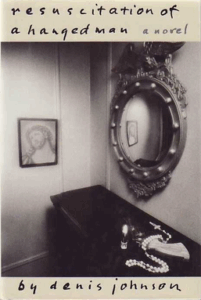
Denis Johnson, Resuscitation of a Hanged Man
On one level, Resuscitation of a Hanged Man is a private eye novel. But then, this is Denis Johnson, so it’s not exactly a private eye novel, or really any kind of novel. Maybe you could call it a search for meaning or religion. The setting is Provincetown, Massachusetts, way out at the end of the Cape, the end of America, a longtime haven for seekers and artists. Johnson’s detective is Leonard English, washed up in P-town in the wake of a suicide attempt, desperately on the hunt for a feeling of religious penetration or insight, but meanwhile battling deep bouts of doubt, depression, and dementia. Johnson’s version of coastal life in Massachusetts is steeped in big characters on their own quests – a few charlatans in the mix, of course, but it’s never easy to tell who’s looking for God and who’s out for a buck. The result is a deeply disturbing novel, as it’s intended to be.
Okay, bear with me as I mention a different sort of coastal Massachusetts novel…
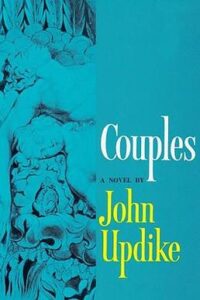
John Updike, Couples
Here is the quintessential bed-hopping novel that helped define a promiscuous and deeply unhappy generation. The action is set in “Tarbox,” a small, prosperous community in the marshlands north of Boston, where the local parents throw a lot of weekend parties and drink and screw themselves into an oblivion that occasionally masquerades as spiritual euphoria. Updike is such a deeply gifted writer, he can’t help but infuse the whole sordid mess with the kind of transcendence you rarely come across in novels these days, or any other days, maybe. And of course the whole thing is salt-laced and absolutely debauched, but with a sadness that might catch you off guard in future readings. Tarbox is a paradise headed toward doom.
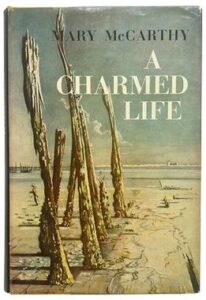
Mary McCarthy, A Charmed Life
McCarthy’s 1955 novel is mostly forgotten now, but it was a progenitor to a lot of bedhopping novels that would spring up in the decades to come. It’s set in a fictional Cape Cod town known as New Leeds, where, as McCarthy pithily has it, “everyone is artistic, but no one is an artist.” The story follows along the everyday hopes and tragedies of various residents – the intellectual, the writer, the realtor – but eventually leads up to an accidental pregnancy, a possible abortion, and a terrible car accident that damns the little town in pretty powerful terms. McCarthy lived through many scandals in her day – A Charmed Life is the kind of book only one writer could have produced.
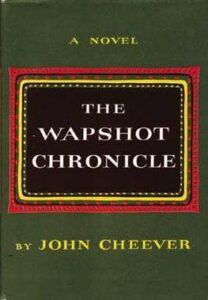
John Cheever, The Wapshot Chronicle
It’s strange to me that The Wapshot Chronicle has been so thoroughly forgotten. It was a huge phenomenon of its day (a bestelling National Book Award winner) and launched Cheever’s career. And Cheever himself remains a darling of literary writers, but perhaps more on the strength of his short stories than his novels. Wapshot follows multiple generations of an eccentric New England family – a particularly New England strain of eccentricity, too, let’s note, a blend of fallen grandeur, intellectual yearnings, and salty fatalism. The family populates a small river port town with a similarly fallen atmosphere, and Cheever has packed his characters with all his now well-known inner conflicts and desperation.
***
And yes, I fully recognize that we’ve ended this list in territory that by no means can be labeled as ‘literary mystery’. I know that Updike is where the wheels came off, but in my defense, I think there are some existentialist through-lines running between, say, McCarthy, Updike, and Johnson, continuing on to Russo and Carter. And for Cheever, I have no defense except I’ve always read him as wanting to take a sharp turn into mystery with his novels. He never quite does take that turn, but it’s the suggestion of the unexplained on the near horizon that, for me, gives his work such enduring power.
Dwyer Murphy is the author of the novel, The House on Buzzards Bay, now available from Viking Books.


